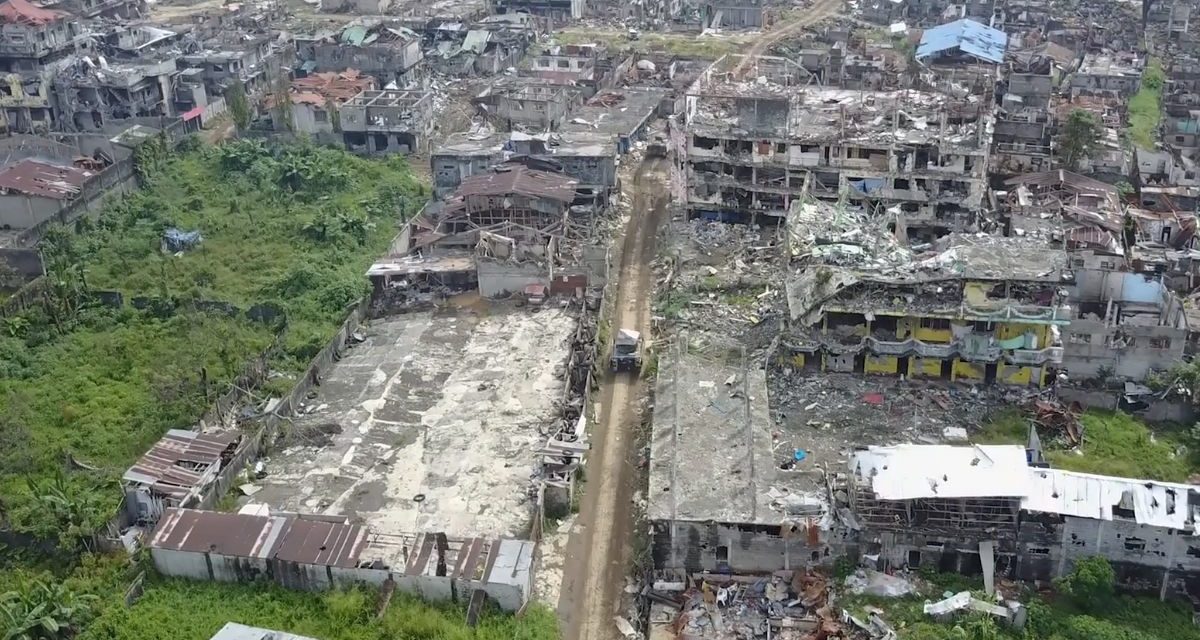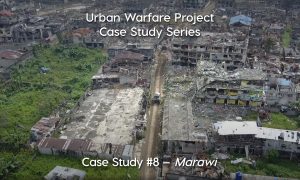Seven years ago today, at 2:18 pm local time, soldiers of the Philippine Army’s 4th Light Reaction Company approached a house on the western side of the city of Marawi. Intelligence indicated that inside the house were two leaders of the Islamic State in the Philippines—an Islamist group that had been formed in 2016 with the merger of several other militant organizations.
Hastily planned and executed, the raid triggered a firefight that lasted through the night and into the following day. By the afternoon, when the assaulting force finally secured the target building, the leaders had escaped. The failed raid accelerated the terrorist group’s plans for a major offensive in Marawi, for which the group’s leaders had facilitated the infiltration into the city of a large number of fighters, as well as stockpiles of weapons, explosives, drones, and other materiel. They quickly seized substantial portions of the urban area, including taking many of its residents hostage. A battle to recapture Marawi from the militants followed—an intense and challenging fight that took five months.
The eight installment of the Urban Warfare Project Case Study Series describes the Battle of Marawi, pulling lessons from it—at the strategic, operational, and tactical levels—that help to provide a better and more nuanced understanding of the unique complexities of urban warfare. You can read the case study here, and be sure to follow the Urban Warfare Project for future case studies and insightful analysis of challenges faced by military forces operating in cities.
John Spencer is chair of urban warfare studies at the Modern War Institute, codirector of MWI’s Urban Warfare Project, and host of the Urban Warfare Project Podcast. He served twenty-five years as an infantry soldier, which included two combat tours in Iraq. He is the author of the book Connected Soldiers: Life, Leadership, and Social Connections in Modern War and coauthor of Understanding Urban Warfare.
Major Jayson Geroux is an infantry officer with The Royal Canadian Regiment and is currently with the Canadian Army Doctrine and Training Centre. He has been a fervent student of and has been involved in urban operations training for over two decades. He is an equally passionate military historian and has participated in, planned, executed, and intensively instructed on urban operations and urban warfare history for the past ten years. He has served twenty-eight years in the Canadian Armed Forces, which included operational tours to the former Yugoslavia (Bosnia-Herzegovina) and Afghanistan.
Liam Collins, PhD was the founding director of the Modern War Institute at West Point and a Fellow at New America. He is a retired Special Forces colonel with deployments to Iraq, Afghanistan, Bosnia, the Horn of Africa, and South America, with multiple combat operations in Fallujah in 2004. He is coauthor of Understanding Urban Warfare.
The views expressed are those of the authors and do not reflect the official position of the United States Military Academy, Department of the Army, or Department of Defense, or that of any organization with which the authors are affiliated, including the Canadian Army Doctrine and Training Centre, the Canadian Armed Forces and the Canadian Department of National Defence.


